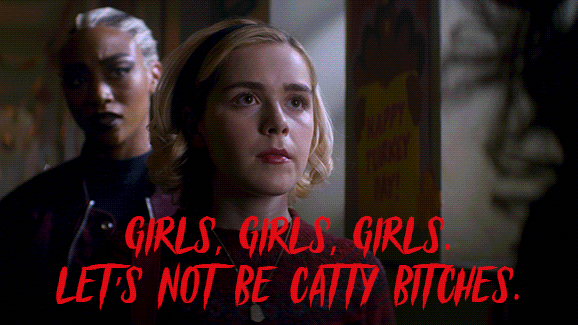You Need To Stop Stanning Politicians, They're Not Celebrities, And Politics Isn't Entertainment
We need to learn how to support politicians without idolizing them.
OK, listen, I also think Alexandria Ocasio-Cortez is cool. I had an Elizabeth Warren sign in my dorm room for a while. I'm currently interning for a congressional candidate. I'm very invested in politics. And supporting and liking certain politicians over others is a part of being invested in politics.
But it's time to stop treating politicians like celebrities. Please.
There's nothing wrong with supporting or liking politicians, but treating them like artists or actors is inherently problematic. You aren't a "fan," of senators or presidential candidates, you're a supporter. And politics isn't entertainment, as much as it might feel like it with major candidates yelling over each on national television.
My problem with fan-cams of AOC and calling Nancy Pelosi a #GirlBoss isn't so much with the actions themselves as with the idolization and uncritical support they foster. By treating elected officials how we treat celebrities and entertainers, we make our priority them as people rather than the ideas and issues they support.
Politicians are public servants — our priority needs to be on what they bring to the table and what they've done for the people they represent.
The most obvious and troubling example of this idolization of elected officials has to be the cult of personality that's been built up around Donald Trump. For many of his supporters, the president is simply incapable of doing wrong. Anything he says or does that's bad can be written off as a misunderstanding, a joke, or an example of him 'trolling' the media. The emphasis isn't on the president's policies or his actions in office; it's on Donald Trump as a person. And that's dangerous.
This isn't a one-way street, however. No one should be idolizing any politician, even if you like them.
Support them. Vote for them. Like them as people. But don't let the priority be anything other than their beliefs. For instance: I really like Bernie Sanders. I like the majority of his ideas, and I think he's a genuine, principled person. But I need to be capable of disagreeing with Bernie Sanders if he says something I don't agree with.
We all need to acknowledge and engage with the faults of our public officials. They can be your role models and they can have your support. But we all need to be able to criticize them when it's necessary. They're not your favorite actor that you'll defend even when their new movie is bad. They're public servants who are supposed to help the people who elected them.








































